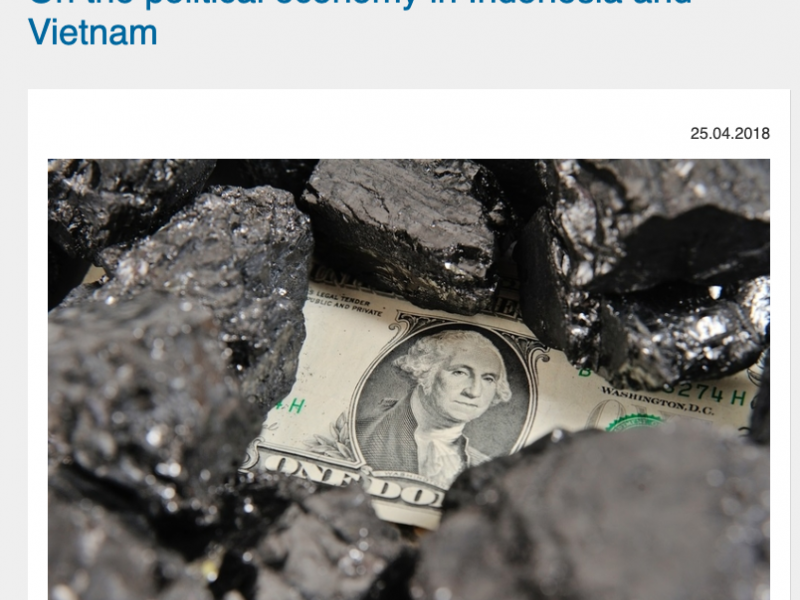Keeping the lights on – On the political economy of coal investments in Indonesia and Vietnam

Phasing out coal until the middle of the century will be one of the most important steps to reach the climate targets of the Paris Agreement. The good news in this regard is that globally the coal pipeline is shrinking. Some of the world’s prime coal users, especially China and India, have cancelled and shelved some plans to construct new coal power plans.
The bad news, however, is that the next group of fast growing countries envisage to make coal their primary source of energy. It is the next billion of people escaping poverty, living primarily in the populous countries of South and South East Asia that drive the next wave of coal investments. Typically, they still use relatively little energy per capita but show rapidly increasing energy demand to satisfy their needs. Within the scope of a long-term project to better understand which political factors drive investments into coal, we are currently involved in two case studies in Indonesia and Vietnam, who plan to substantially ramp up their coal capacities. For this reason, we travelled to both countries and would like to share some first insights.
Steckel, J.C. & Michael Jakob (2018): Keeping the lights on – On the political economy of coal investments in Indonesia and Vietnam. Available online at: http://blog.mcc-berlin.net/post/article/keeping-thelights-on.html

